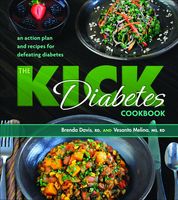Label
All
0
Clear all filters
Save 25% on ckbk Premium Membership with code FALLFLAVORS 🍁
Best Choices
Appears in
By Brenda Davis and Vesanto Melina
Published 2018
- Variety is the key, as the nutrition contribution of nuts and seeds is quite diverse. Almonds and sunflower seeds are the vitamin E superstars. Almonds and chia, poppy, and sesame seeds are rich in calcium. Most seeds, pine nuts, and cashews are rich in iron and zinc. Brazil nuts are selenium superstars, and chia and pumpkin seeds are richest in magnesium. Walnuts and pecans appear to be champions in terms of antioxidant content. Peanuts are particularly high in protein.
- Include at least one omega-3 choice: walnuts or chia, flax, or hemp seeds. The absorption of omega-3 fatty acids is improved by grinding chia seeds and flaxseeds.
- Be sure seeds are part of the mix. Seeds are higher in protein and fiber and more concentrated in essential fatty acids (both omega-6 and omega-3 fatty acids) than nuts (except for walnuts).
- When possible, choose nuts and seeds that are raw, soaked, sprouted, and dehydrated. Soaking and sprouting increase the content and availability of nutrients, phytochemicals, and antioxidants. Roasting at temperatures above 248 degrees F (120 degrees C) can cause the formation of dangerous chemicals, but soaking and sprouting do not.
Part of
Advertisement
Related Recipes
-
-
-
-
Related Reference
-
-
-
-
Advertisement
The licensor does not allow printing of this title




